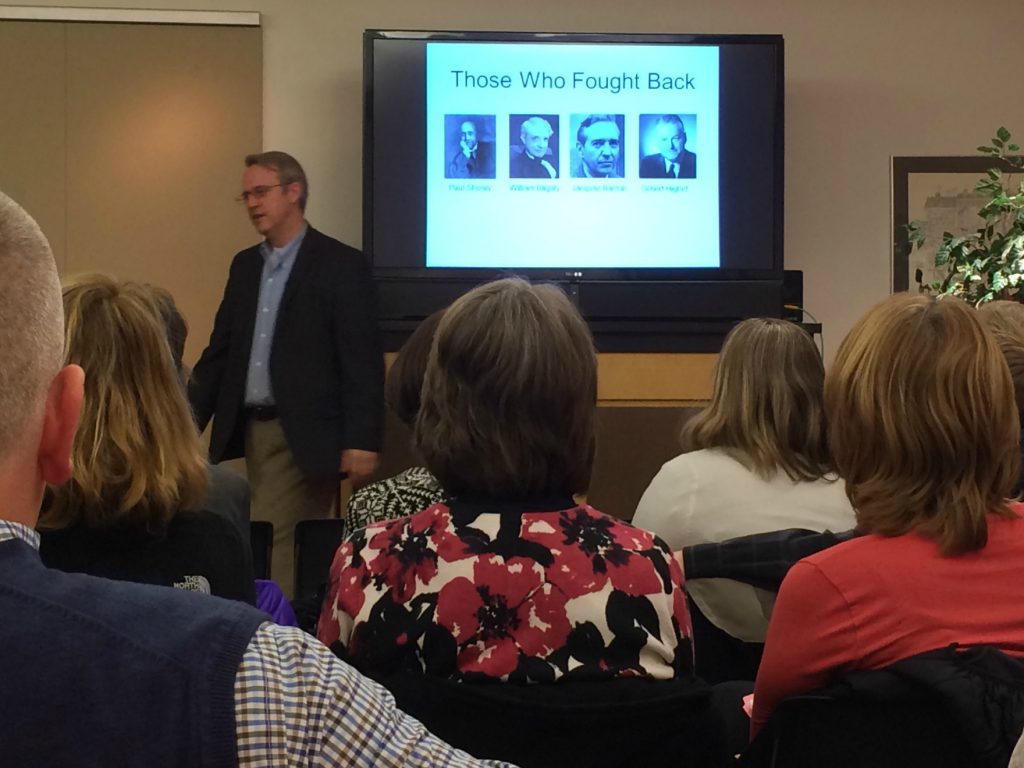We had a wonderful evening with Dr. Chris Perrin at our Beyond Common Core: A Night for Parents Who Want More event on Tuesday, March 10. The beautiful WITF building proved to be a lovely venue for our audience of about forty teachers, administrators, parents, grandparents, and others who navigated the dense fog shrouding Harrisburg that evening to hear Dr. Perrin’s talk.
Dr. Perrin explained the backdrop of educational philosophy in the United States that provides a helpful context for understanding this new movement. He began by noting how the name “Common Core” appealed to him as a classical educator – what could be better than having students feast on a core of great literature and ideas that are common to our whole civilization. A “common core” education is, in that sense, what we try to provide at Covenant Christian Academy. Our curriculum draws from a great body of time-tested works which are the essential food on which a liberal education grows.

This classical idea of “common core” is not, alas, what is meant by the current movement gaining sway over our country. Rather than retrieving the riches of a tradition stretching back several thousand years, the current philosophy seeks to base its curriculum on new and “scientific” ideas – emphatically looking to the future rather than to the past. Dr. Perrin pointed out that CC encompasses many ideas and standards that any reasonable person can see as helpful and good. Furthermore, he believes many of the proponents are thoughtful and intelligent people with a sincere desire to improve education. Nevertheless, Dr. Perrin explained that the overall effect and top-down implementation of CC would have a harmful effect on education.
At its most fundamental level, the difference between a classical liberal arts approach to education and the new Common Core standards is found in competing understandings of the purpose of education. For CC, the goal is “career and college readiness.” Now this is a fine subordinate goal, but for the classical tradition, this goal is way too low. As Dr. Perrin has written, “With no robust vision for the end of education, education ends.” In the classical Christian renewal movement, the end – or purpose – of education is “the cultivation and nourishment of a human soul on truth, goodness and beauty . . . such that students realize their humanitas and acquire wisdom, virtue and eloquence.” Now that is an end that will inspire students, that will ignite a desire to learn, that will stir creativity and imagination, and that will animate a community of learners who are prepared for anything the future may bring. Unfortunately, such a vision will never be able to flourish in the Common Core model.
If you were not able to attend the event, you can learn more about Common Core and why its implementation “will produce less of what it seeks,” by reading Dr. Perrin’s article, “The Common Core and the Classical Tradition.”
